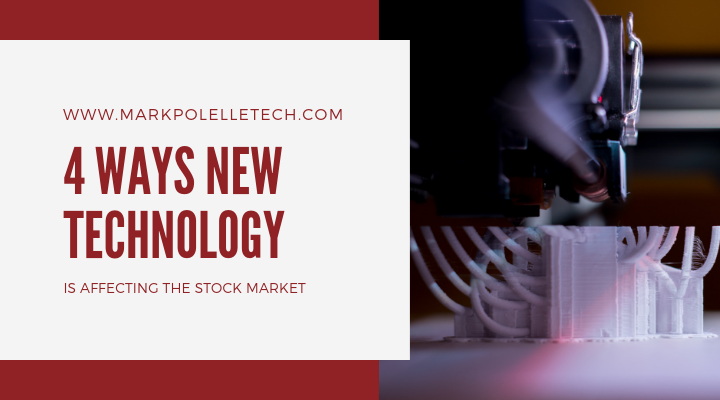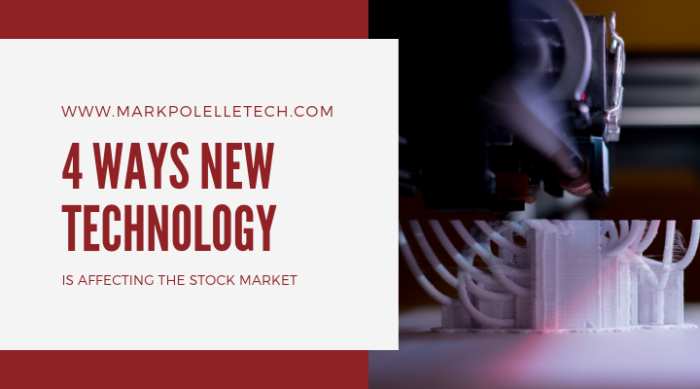The stock market of old, where trades are executed over the phone and in person, is no longer. Now, electronic algorithms and brokerages dominate the way that the stock market operates. Trades are now done at lightning speed and transactions costs are much lower than they were during the last century. In addition, information travels much faster, giving individual investors more access to timely news than they ever had. Here are four technologies that are changing the way that the stock market operates.

The Use of Apps
Apps make it easier for individual investors to have instant access to the stock market no matter where they are. The use of apps also means that there are lower overhead costs. The combination of easy access and low costs makes it such that individual investors have access to the stock market that almost rivals that of institutional investors. Investors do not need to wait to be in front of a computer in order to make their trades. In addition, access to the stock market is now nearly round the clock. Danny Errico is a developer of technologies that can help with financial investments.
Electronic Exchanges
It used to be that investors had one choice when it came to trading stocks and options. This gave those exchanges an incredible amount of power and leverage in terms of setting securities prices. The proliferation of electronic exchanges has improved the prices that investors receive on their securities transactions. Now, one company can be traded on a multitude of different exchanges, placing the exchanges in direct competition with each other for trading volume. The more exchanges that compete for investors’ business, the better off that investors are. The competition manifests itself in better trade executions and lower costs to trade.
Better Investor Tools
Individual investors now have the same tools at their disposal as the professionals. This includes access to charts and technical indicators. Investors can now get real-time alerts if a stock crosses a key technical level, prompting them to make a trade. The more informed that investors are, the better they are able to perform in the marketplace. Investors are now more able to do their own homework rather than relying on the institutions to provide them with advice. Moreover, the cost to access these tools is declining, making these tools even more accessible to the general population.
Automatic Portfolio Management
The growing trend of robo-advisors takes much of the work and the expense out of managing a portfolio. These financial advisors put a variety of different investment options in the hands of individual investors that they ordinarily could not access. Investors can choose from many different strategies that are available at a low overall cost. These advisors usually charge a percentage of assets under management as a fee. The percentage may even be lower than what a traditional stockbroker will charge. Most often, these accounts are managed on the basis of complicated algorithms so no effort is require on the part of the account holder other than choosing the advisor. This means of investment management relieves investors of the stress of having to make their own financial decisions.
Wall Street is fast becoming a more democratic environment thanks to continuous improvements in technology. This benefits individual investors by leveling the playing field on which they compete. These investors are no longer at as much of a disadvantage as they were previously making investing overall more profitable for them.

